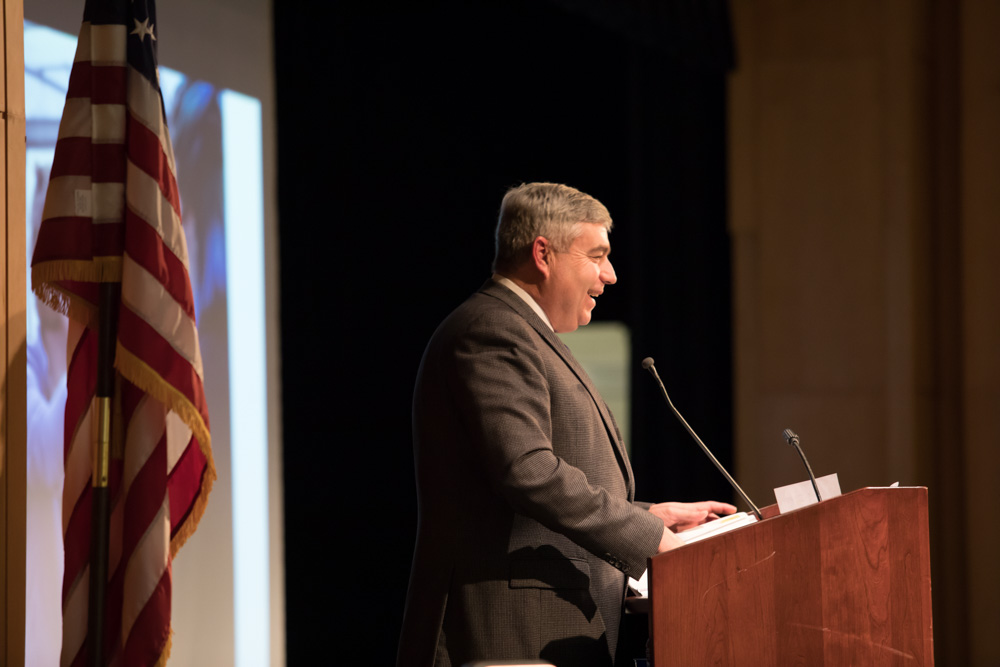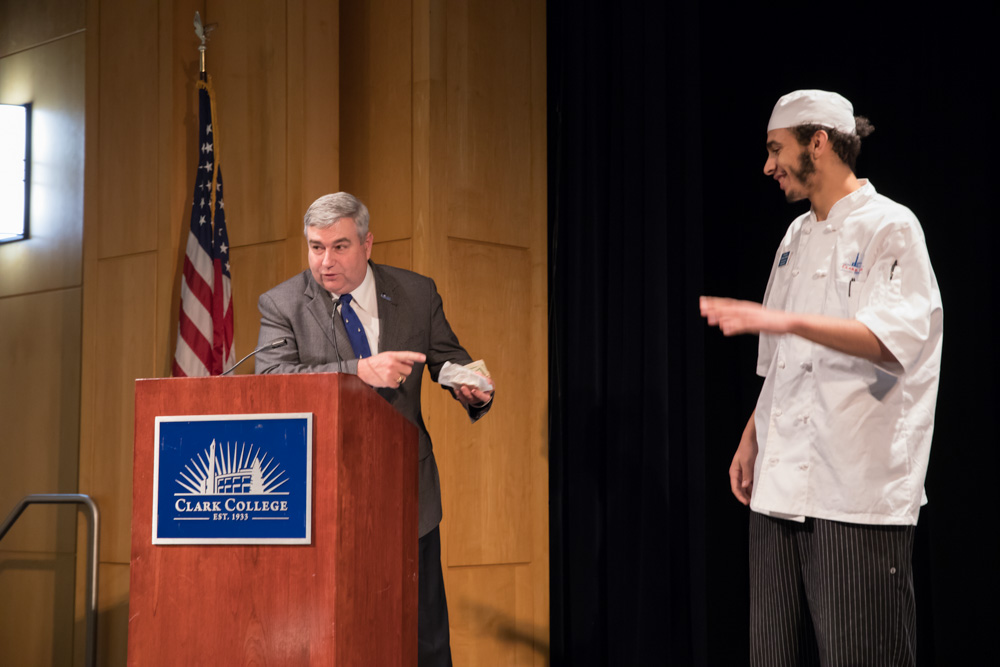State of the College
At his annual State of the College address on January 18, Clark College President Bob Knight highlighted both the college’s accomplishments and its challenges.
When it came to the former, Knight didn’t have far to look—just outside the doors of Gaiser Student Center, students were learning and eating at the McClaskey Culinary Institute, which opened in the fall. About a dozen students from the Professional Baking and Pastry Arts program stood against one side of the room, and one of them presented Knight with his favorite pecan bar.
Knight had other sweet news to share, including the opening of an on-campus food bank for students and the announcement of 20 new athletic scholarships to be bestowed each year. He also announced a new agreement that will allow for increased student exchange with colleges and universities in Japan. And he shared that the college’s new Bachelor of Applied Science in Applied Management is potentially adding cohorts due to high demand. Two more bachelor’s degrees—one in Early Childhood Education and one in Addiction Counselor Education—are “on the horizon,” he said.
Knight also noted that Clark had been chosen by the American Association of Community College to be a Pathways 2.0 College—one of just 13 community colleges across the country to receive this designation. This will allow Clark to receive training and support as it converts to the “Guided Pathways” model of higher education, which streamlines students’ journeys from admissions to career with clearly explained educational pathways.
Knight said that Guided Pathways was vital to managing one challenge currently facing the college: student retention. “Our goal is that all students, regardless of ethnicity or economic background, achieve and succeed at the same rate,” he said.
Knight shared stories of recent graduates who had succeeded at Clark: Nancy Boyce, who now runs her own diesel repair company in Alaska; Dr. Inva Begolli, who came to Clark from Albania and recently earned her doctorate in pharmacy; and Cody Messick, a lackluster student in high school who discovered a love of physics and math at Clark that propelled him onto a team that discovered gravitational waves in deep space. Knight also recognized several employees for their support of student success: CADD professor Keith Stansbury, who advises the college’s aeronautics club, and biology faculty Kathleen Perillo and Erin Harwood, who have led students on a project to restore salmon habitat at Clark’s future location in Ridgefield. Additionally, he bestowed Presidential Coins on Workforce Education Services director Armetta Burney and Instructional Operations associate dean Rachele Bakic.
However, Knight added a caveat that these individual stories should not be considered a substitute for systemic change.
“Many of these students, we call them ‘heroes’ because they had to overcome obstacles to succeed and complete their degrees,” he said. “We don’t want them to have to be heroes to succeed. That’s the intent of Guided Pathways. … We want those meaningful connections, [but] we’ve got to make sure it’s systemic—that we don’t count on students lucking into a Keith Stansbury or an Armetta Burney.”
Knight said that achieving that kind of systemic change would require the help and participation of everyone at the college. He referenced Who Do We Choose to Be?, a new book by leadership expert Margaret Wheatley. “The fact is, there’s a chaotic world out there,” he said. “But here, as leaders, we can create what [Wheatley] calls ‘an island of sanity.’ Let’s just focus on what we can do in our own community here at Clark College. We need to create our own island of sanity, and Guided Pathways will help us do that.”
Photos: Clark College/Jenny Shadley

